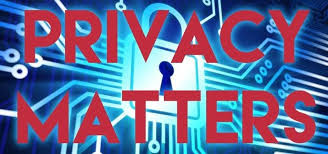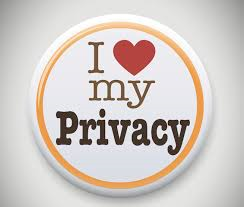 October 2019
October 2019
In the current digital age privacy has become a big concern, and rightfully so.
As Scott McNealy, (CEO and one of the founding members of Sun Microsystems) said some years ago, “You have no privacy — get over it”. It was true back then and your privacy has continued to further erode ever since.
Yes, big tech has your data and that is a little scary. But what is worse is big government has your data too, and that is even more scary. You can change, (in most cases) who you do business with but it is much harder to change what country you live in. The mega corps have a vested interest in keeping customer, (or potential customer) data secure. Some are better at it that others while government tends to leak like a sieve.
But before you swear a terrible oath, commit your soul to Valhalla and embark on a crusade to restore you privacy check it out. Just what data about you is really out there and how accurate is that data?Recently I did a search on myself and found a plethora of misinformation. Some of these soulless data miners had my residence as a place I actually did live at, more than thirty years ago! Several of the phone numbers they had on me I had never heard of, some were phone numbers that were decades old, one was actually my parents. My current personal number wasn't listed at all. They were listed as land lines and I haven't had a land line in decades. In one case they even had one of my customers phone numbers listed as mine.
The same was true for email addresses. Out of all the email addresses I have they had only one of mine and several that I didn't recognize. Under the “Also Known As” section one of the “Aliases” they had for me was Ken S Korner, (I got a good laugh out of that).
 Under relatives they had my parents and two of my four siblings and that was it. I have a lot more relatives than that! I was not associated with any businesses even thought I have owned and operated Ken's Korner, (registered with the state of Colorado) since 1996
Under relatives they had my parents and two of my four siblings and that was it. I have a lot more relatives than that! I was not associated with any businesses even thought I have owned and operated Ken's Korner, (registered with the state of Colorado) since 1996
To their credit they did get my name, age and current residence right. They also correctly stated that it was, “not likely” I was married.
I also checked on a friend of mine and found that while they had the address and phone number correct they listed him as living but he actually died several years ago. How could they be so far off base? This isn't rocket science; all of these details are public knowledge.
So do a search on yourself and see what they have on you. Just type your name into Google and go from there. There are way too many search services to list here and I don't know if any of them are worthy of praise. I would suggest using the free search first. If the data they have on you is as error infested as mine was you might want to pass on the paid search.
NOTE: Google collects data from their users and you can see what data they have accumulated about you. Just ask Google and follow the steps. It might surprise you. They had over twenty pages of stuff on me.
What can you do about this privacy apocalypse?
Not much I'm afraid. Each service pulls data from a variety of databases which in turn pull data from other databases. Trying to find to original source is nearly impossible. While these data scrounges are very good about collecting information they seem to be incapable of purging old stale and inaccurate information from their files. Even if they do make an effort to delete the inaccurate information mirror sites, proxy servers and archives often put it right back. As it is often said, “Once it is out there, it's out there”!
Legally
From a legal standpoint the law is pretty weak, as many celebrities have found out the hard way. Invasion of privacy is illegal but that doesn't mean it is enforceable. The four main types of invasion of privacy claims are:
- Intrusion of Solitude
- Appropriation of Name or Likeness
- Public Disclosure of Private Facts
- False Light
Keep what little privacy you have left.
There are some things that you can do yourself to thwart or at least mitigate efforts of the identity thieves:
Don't give out your social security number.
A lot of banks and other financial institution use the last four digits for security purposes but that can be dangerous too. If a hacker has the last four digits and your birthplace it is a lot easier to guess the rest of the SSN. That is because the first three digits are determined by where you applied for your SSN. The second set of two is a group number assigned to all numbers given out at a certain time in your geographical area. So a determined identity thief with a little computing power could, in time, calculate the rest of your SSN.
Lock down your hardware.
Set your PC and mobile devices to require a password. While you may trust the people around you what if your device is stolen? Tracking software that can locate your device is also a good idea. Maybe your device wasn't stolen, just lost. Windows 10 has “Find my device” built in, you just have to turn it on. There are also numerous third party apps available for tracking.
Lie when setting up security questions.
Mother's maiden name, your high school, in what city were you born? These are common security questions but a search of a few genealogy sites can provide most of the answers. Just make a note of the answers you used and keep that list in a safe place.
Set up a Google Alert for your name.
This is a rather simple procedure. You just tell Google what to search for, (your name), what kind of web pages to search, how often to search and what e-mail address to send the results to. To set up your Google search go to https://www.google.com/alerts.
Scammers often pretend to be someone you trust like, a government official, family member or charity. Don't give out personal information or send money in response to an unexpected request.
Don't fill out your social media profile.
The people who need your birthday, e-mail address, phone number and so on already have that information. Thieves can collect an amazing amount of personal data just by perusing social media sites. Review your profiles and keep them barren. Also be careful of posting too much information. Pictures of things like your new car showing the license plates and your home address in the background can give the identity thieves an extra boost.
Use a long password.
Or even a pass phrase. Complex passwords really don't offer much better protection. It's the length not the complexity that makes it difficult for hackers to crack passwords. And don't use obvious things like your name backwards, 1234 or “password” for your password. Also use two factor authentication when possible. Don't use the same password for everything. If you can't remember all those passwords us a password manager like Last Pass.
Pay with cash.
Credit card companies sell your purchasing information to advertisers. If you don't want people to know how much booze you are buying or other potentially embarrassing information purchase things the old fashioned way, with bills and coins. Restaurants and nightclubs are another place to use cash instead of credit cards. You hand the waitperson your plastic and they return with the receipt they have had plenty of time to take a picture of your card and save it. They could be doing an on-line buying spree before you even get home.
Google Drive, One Drive and other free public storage are not secure. If you read the fine print, (which most people never do) you'll find that anything stored on these sites is the property of Google or whoever owns that service. They search through the drives looking for information to sell to advertisers as a means of supporting the service. Remember that when it is free, YOU are the product being sold.
Keep your main e-mail address private.
Use things like Gmail and Outlook.com for the public consumption. When you fill out a form at some retailer, either on-line of on paper use the “throw away” email address. If it becomes a spam magnet just drop it and create a new one. This keeps your real e-mail inbox from getting filled with spam messages.
Don't use public Wi-Fi.
You just can't trust public Wi-Fi! You don't know what lowlifes are lurking on the network waiting to grab passwords and other sensitive information. If you must use public networks then use a VPN like ExpressVPN or NordVPN especially if you are traveling in foreign countries.

Use messaging apps with “end-to-end” encryption
Most modern messaging apps use encryption but in many cases it's just “encryption in transit”. The message is decrypted on the provider's side and stored on their servers. If someone hacks their way into those servers they can read your messages in plain text. Use the end-to-end encryption like WhatsApp. Then even the service provider can't read your messages.
Review permissions for mobile apps and browsers.
Mobile apps prompt you to give them permissions to access contacts or files in device storage. They also ask for permission to use the camera, microphone, geolocation and other apps and features on your device. Some really cannot work without these permissions, but some use this information to profile you for marketing and other nefarious purposes.
And remember — always back it up!